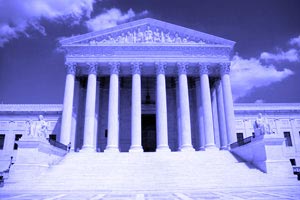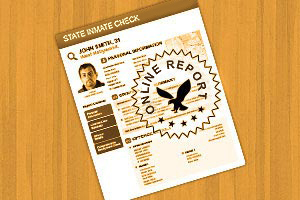North Carolina Public Records
The citizens of North Carolina are guaranteed the right to seek out, obtain, and utilize public records held by the authoritative bodies of the state, their county, their municipality, or their city. This right is given to them by the North Carolina Freedom of Information Law, and the mission of the North Carolina State Records site is to provide tools to make record acquisition easier and more efficient.
North Carolina’s Public Records Law holds that records produced by a law enforcement agency, government agency, or affiliate of a government agency will be presumed public until otherwise stated or officially sealed.
Criminal records, court records, and arrest records from over 33 million transparent government documents are available on this website.
Are North Carolina Records Public?
Yes. North Carolina records are generally open to the public - except where exempted by law or court order. The North Carolina Public Records Law preserves the public's right to access records generated by governmental bodies. Specifically, it permits the public to inspect or obtain copies of any record created or maintained in connection with the transaction of public business. Public records may exist in different forms, such as paper documents. Public records may also consist of maps, photographs, digital recordings, or electronic data.
It should be noted that despite the accessibility granted to citizens of the state by the State Public Records Act, the records are not in the open for everyone to copy. Anyone interested in any public record must engage in a public data search.
Individuals can utilize the various search tools offered by various government agency sites to conduct a free public data search. After locating the desired record and the agency maintaining it, individuals will send a Public Records Act request to the custodian of the record to inspect or copy the record.
How Do I Find Public Records in North Carolina?
Interested parties can access or obtain copies of public records maintained by any North Carolina department by following several quick steps.
Step 1. Determine the type of record required.
North Carolina has over 160 government agencies and subdivisions, and each of them generates data that the public can access as public records. Therefore, people seeking access must have an idea of the specific North Carolina department in charge of the information they seek. Luckily, they can be accessed online via the state's official website. Some of the most popular records accessed are:
- North Carolina Vital records. The State Department of Health and Human Services is the repository of records on births, deaths, marriages, adoptions (vital life events), and divorce in North Carolina. Similar records are also available at the Register of Deeds office in each county. However, birth certificates for adopted children can only be obtained from the Vital records unit of DHHS. At the same time, eligible parties can access divorce certificates through the clerk of courts in the county where it was filed.
- North Carolina Criminal Records: Comprise information on people with a history of arrest, conviction, imprisonment, and probation. The North Carolina Department of Justice makes such information accessible to the general public in its capacity as the central repository of criminal history records for the state.
- North Carolina Court Records: These records are generated during court proceedings. Either criminal or civil cases. Interested members of the public can access North Carolina court records online. Court records include court notes, dockets, transcripts, and other administrative information. Public court records are maintained by the office of the clerk of courts in each county under the North Carolina Judicial Branch.
Step 2. Determine the government agency in the custody of the public records.
Enquirers can access the administrative records of public organizations directly from the specific office or website of the agency or department in charge of keeping such records. In North Carolina for example, any information on agriculture, food, and drug protection, plant industry, pesticides, etc is maintained by the North Carolina Department of Agriculture & Consumer Services. Also, the North Carolina Judicial Branch maintains court documents and makes over 1000 judicial forms accessible to the public. NC Department of Health and Human Services maintains information on vital records, while records on court programs, court dates, online services, court forms, and other court services are kept by the North Carolina Administrative Office of the Courts (NCAOC) in the office of the Courts clerk.
Likewise, the North Carolina Department of Public Instructions controls information about education in the state. Others are the North Carolina Department of Public Safety, where information on inmates, juvenile offenses, prisons, and community corrections are domiciled while the North Carolina Department of Environmental Quality handles information on environmental resources - water quality, air quality, wildlife, and public health.
Step 3. Determine accessibility.
It is the duty of enquirers to find out whether records can be accessed by the general public or not. This can be done by visiting the office in question to enquire or by going online to do a little research. Records that are protected under the exception statutes are generally in two groups. Some can only be accessed by authorized persons, such as the actual owner of the record and close relatives. Examples include birth certificates, death certificates, marriage and divorce certificates, adoption records, income tax records as those accessible to authorized persons, and those that are sealed by the order of the court.
Step 4. Determine the Availability.
Some public records are available online. To access records excluded from online repositories, enquirers are expected to visit the office location to obtain the records or write to request that copies be sent via fax or normal mail.
Step 5. Contact the Record Holder
Submit a request letter: Interested persons are required to submit a written request to the particular North Carolina department in charge of the record of interest. The description of the record must be detailed and specific. Alternatively, record seekers may fill an FOIA request form. Applicants can submit requests via email, fax, certified mail, or by personal delivery.
Provide a valid means of identification: North Carolina departments require enquirers to identify themselves to ensure that the enquirer is actually the person requesting access to his or her records, and not an imposter. The inquirer may also be required to submit a notarized statement signed under penalty of perjury confirming the inquirer is who they say they are.
Make Payment: No official charges are attached to public records, but the law permits government agencies to charge nominal fees sufficient to make copies of the records for interested persons. Even at that, requesters may be exempted from paying by applying for waivers.
Using Third-Party Sites to Find Public Records in North Carolina
City Records
Public city records may also be accessible from third-party websites. These non-government platforms come with intuitive tools that allow for expansive searches. Record seekers may either opt to use these tools to search for a specific record or multiple records. However, users will need to provide enough information to assist with the search such as:
- The name of the subject involved in the record (subject must be older than 18 or not juvenile)
- The address of the requestor
- A case number or file number (if known)
- The location of the document or person involved
- The last known or current address of the registrant
Third-party sites are not sponsored by government agencies. Because of this, record availability and results may vary.
Public Records
Public records can also be accessed from third-party websites. These third-party public records aggregate websites offer search services that are non-geographically limited, making the search result expansive and typically straightforward. However, users will need to provide enough information to assist with the search, such as:
- The name of the subject involved in the record as long as the subject is not a juvenile
- The last known or location of the record subject
Third-party public records search websites are not government-sponsored services. Therefore, the availability and accuracy of results can vary.
How Do I Look Up Public Records in North Carolina for Free?
Residents of North Carolina can conduct free public searches of some records through government agencies' databases. For instance, the North Carolina Department of Public Safety maintains an offender public information search/inmate locator. Hence, anyone can search this database to locate inmates in prison, parolees, and probationers in the state. Also, the State Bureau of Investigation maintains a database on sex offenders. This database, the North Carolina Sex Offenders Registry, can be accessed online by citizens anywhere in the state.
It should be noted that some public records though not online, can still be accessed for free at the County Clerk's office. However, there are some records that search or copy fees apply to them. With such records, individuals who wish to access them must, of necessity, pay the specified fee or apply for a waiver if they meet specific requirements before the record is released by the agencies maintaining them.
















